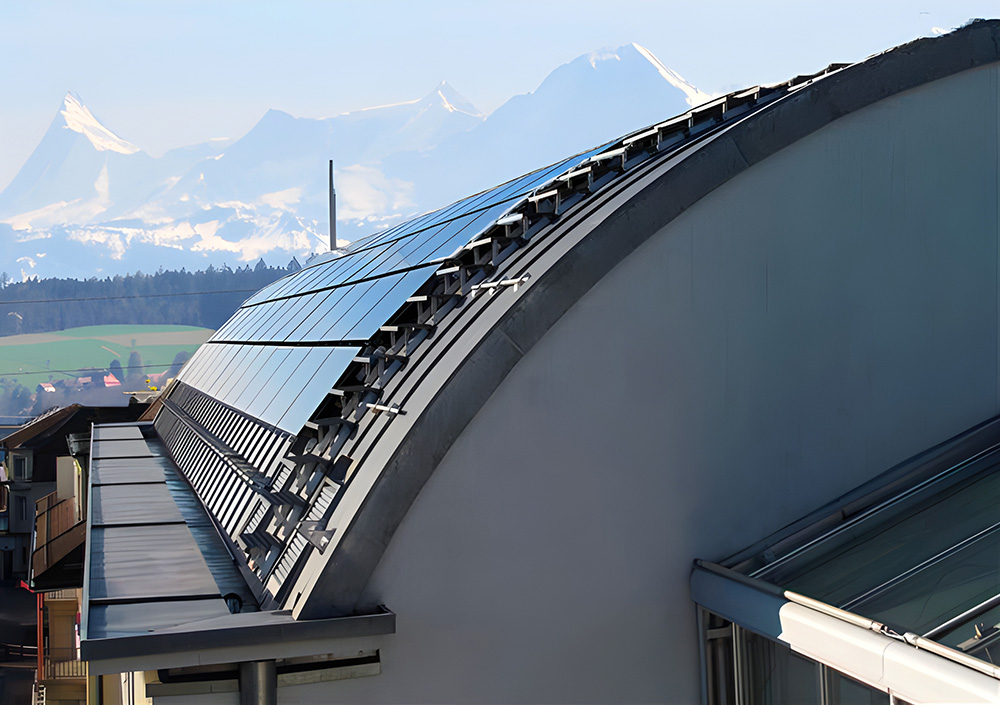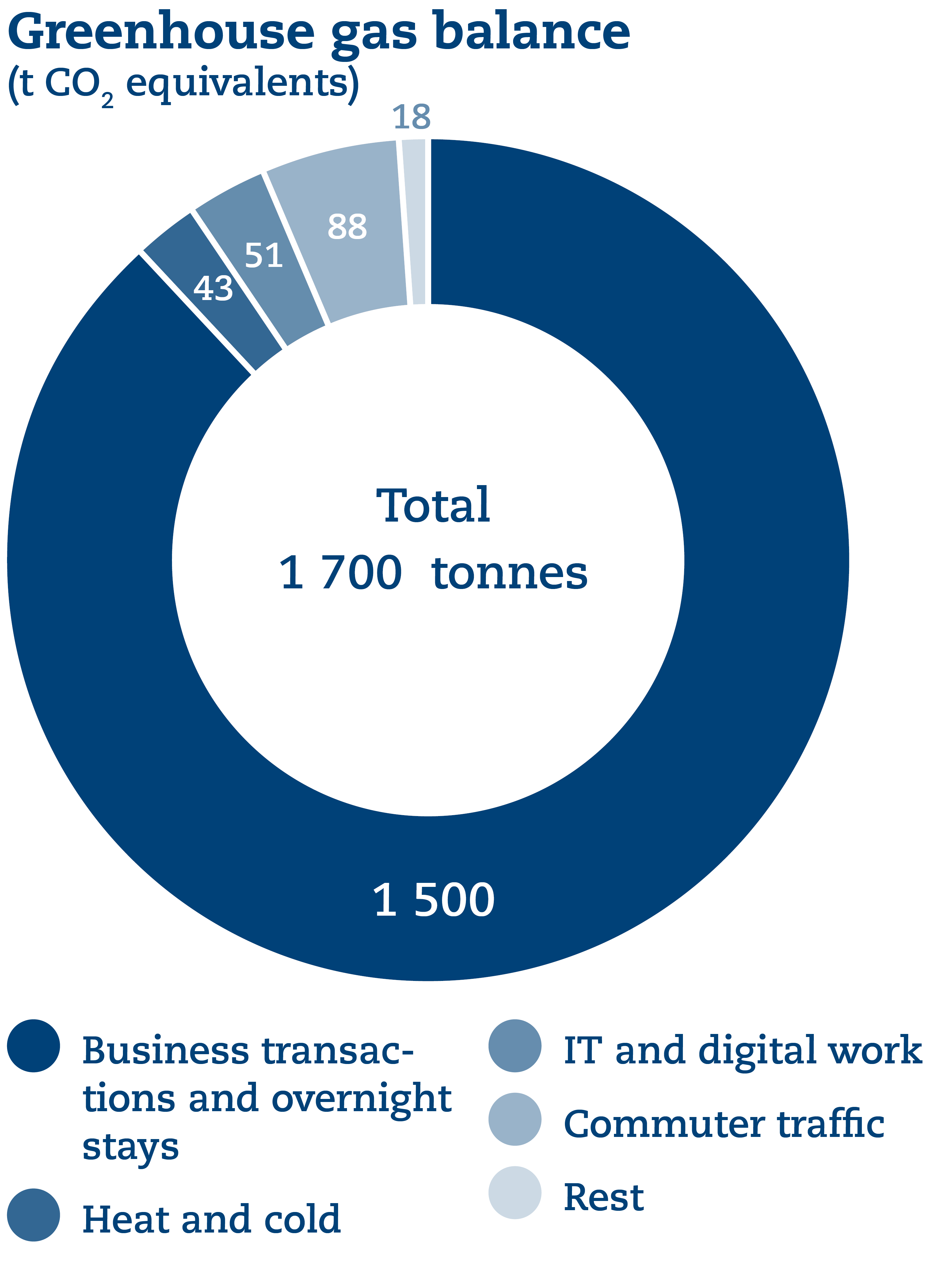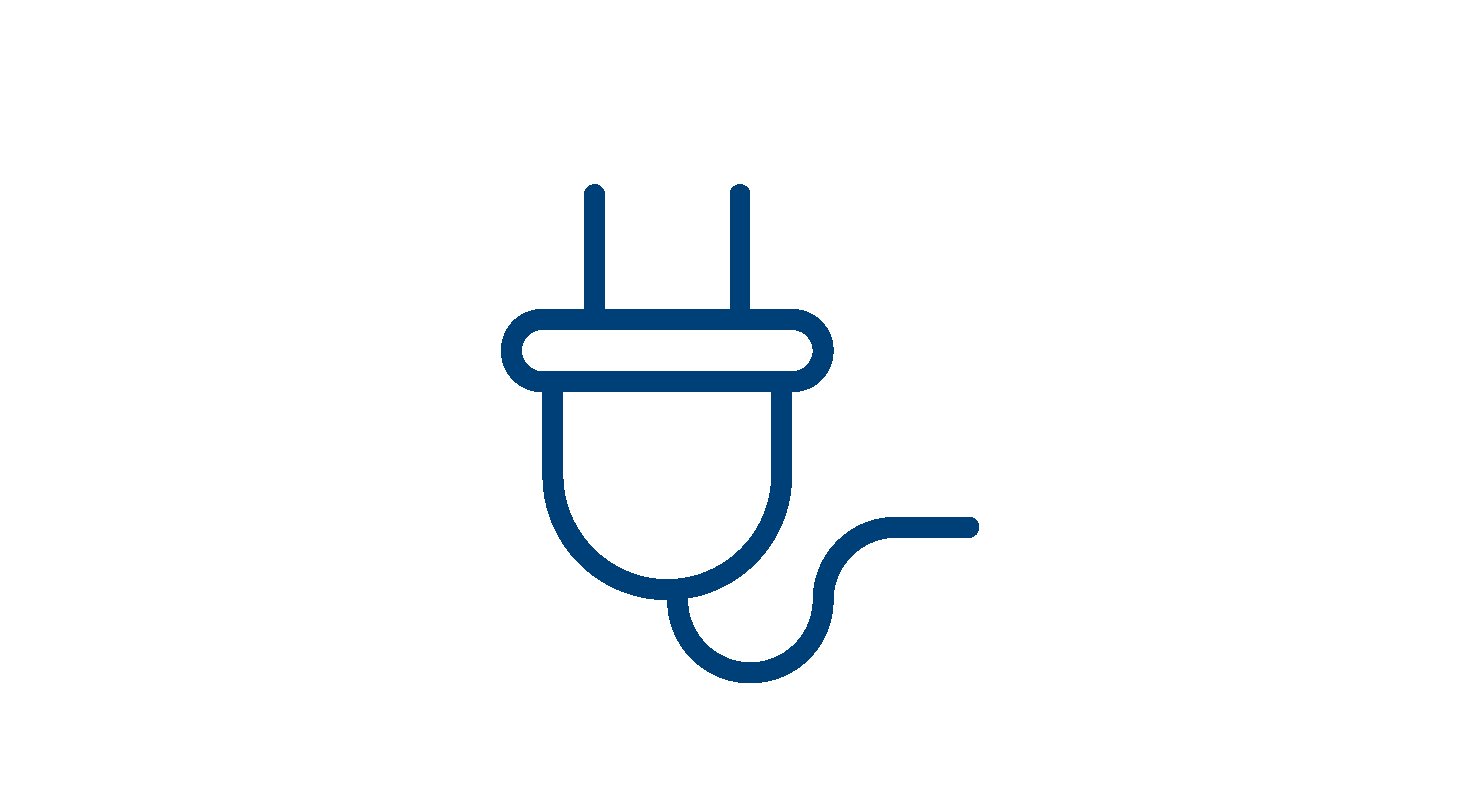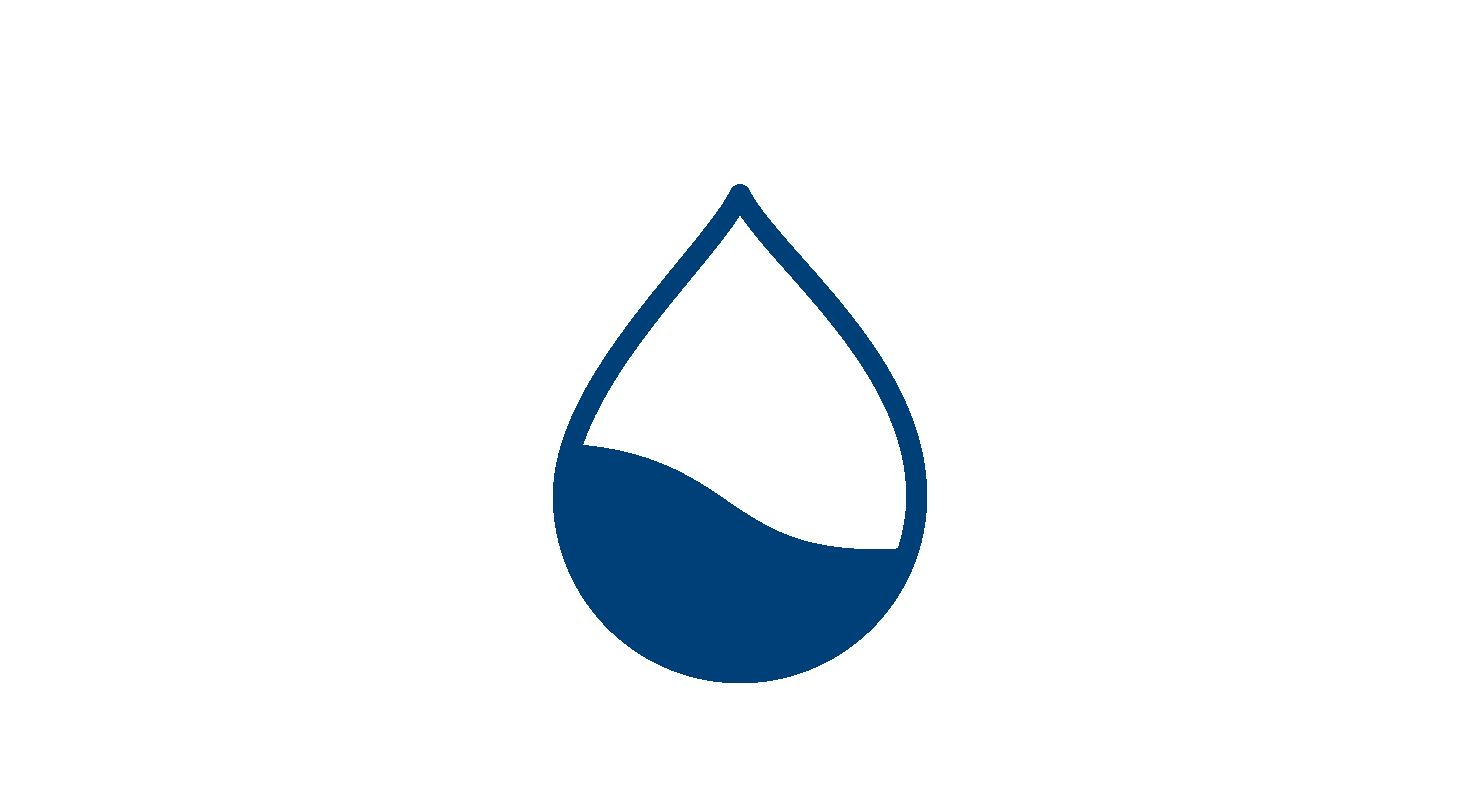4. Environment

The SQS photovoltaic system at the office in Zollikofen near Bern.
4.1 Ecological responsibility
Sustainable corporate governance is inevitably linked to environmental responsibility. That is why we measure our CO2 footprint annually in collaboration with myclimate. The aim is to make emissions visible and optimise associated processes. Compared to the previous year, we recorded almost 1 700 tons of CO2 in 2023, 700 tons more than in the previous year. The significant difference was due to the reduction in air travel in 2022. The reason why this had such a significant impact on the overall CO2 balance is that business travel and in particular long-haul flights account for the majority of total CO2 emissions from SQS activities.

With a more local focus, we are initiating a trend towards the necessary circular economy on several levels. For example, we have been producing electricity on the roof of the office for years with the equivalent of 20% of the energy used. Thanks to heat recovery, the natural gas heating is supported by the Migros cooling systems in the basement. All smartphones are rented as DaaS (Device-as-a-Service) instead of purchased - they are thus retained in the economic cycle for multiple use.
Even though we have the greatest influence on resource consumption and environmental performance by empowering and monitoring our customers for sustainable corporate governance, we also realise that we need to make further efforts ourselves. As an active member of öbu (The Association for Sustainable Business), the Sustainable Entrepreneurs Club, STS2030 and Circular Economy Switzerland, we are committed to a sustainable economy.
At the same time, we are constantly looking for ways to reduce our emissions or create incentive systems for more sustainable behaviour. Some of these instruments are attractive home office options or our «bike to work» campaign.
Commuter traffic
The 93 employees at the head office all work at the headquarters in Zollikofen. In order to analyse how emissions are generated on the way to work, we regularly survey commuter traffic. Of the cumulative 400 000 km commute to work in 2023, 165 000 km were travelled by public transport and more than 9 000 km on foot or by bike.
The option of working from home was utilised slightly less than in 2022. However, this still saved almost 200 000 km of commuting.
In 2023, numerous employees once again took part in the «bike to work» initiative, doing something good for their personal health as well as avoiding emissions.
Business travel
Where wood is planed, chips will fall. For SQS, this means that most emissions are generated where the majority of business turnover is generated - namely in mobility. By far the biggest driver is the business travel of auditors, most of whom carry out audits on site. Remote audits only made sense in the exceptional situation of the pandemic.
Long-haul flights topped the list in 2023. Compared to the previous year, flight kilometres tripled to 1.5 million. This was due to the pandemic-related travel restrictions in Asia, which were lifted in 2023. Hotel overnight stays also increased again for the same reason.
In national business travel, the ratio between private transport - namely private cars - and public transport remained at 2:1. The figures remained similar to the previous year. SQS is aware of this unsatisfactory situation and is looking for ways to increase the share of public transport.
4.3 Energy- and resource consumption
While mobility mainly reflects the work of our auditors, energy and resources are consumed in particular at the office in Zollikofen. Energy consumption for heating and ventilation, which is mainly provided by natural gas, has fallen by 50 000 KWh, which is pleasing but not due to any fault of our own. We can only speculate as to the reasons for this, as it was not the result of any specific measures. One factor could have been the milder winter months.
We were also able to count on heat recovery from the cooling systems of the Migros branch in the basement of the office. As a condominium owner, we benefit from around 23 000 KWh every year. At 157 000 KWh, electricity consumption was also only slightly below the previous year's figure of 162 000 KWh, while the solar panels on the roof fed a stable 60 000 KWh into the electricity grid. There were also no surprises in terms of water consumption, which remained almost at the same level at 513 m3.

157 000 KWh
Electricity consumption

60 000 KWh
Solar panels

513 m3
Water consumption
On the way to a paperless office, we have seen a continued reduction in paper consumption. Once again, more correspondence was sent by digital post. The only exception was the printing of the anniversary book «Wheels of Normality. Building trust through standards». It was produced using 1.2 tons of paper. The aim of this project was to utilise the resource sustainably, as the content will be used by the SQS beyond the anniversary year - and hopefully also by the readership.




